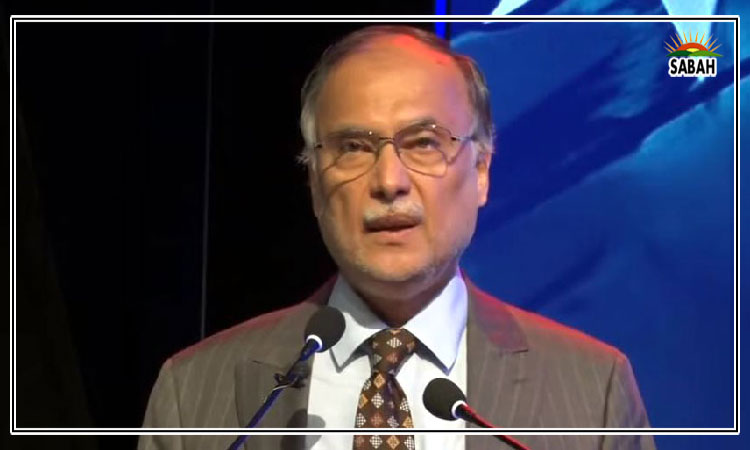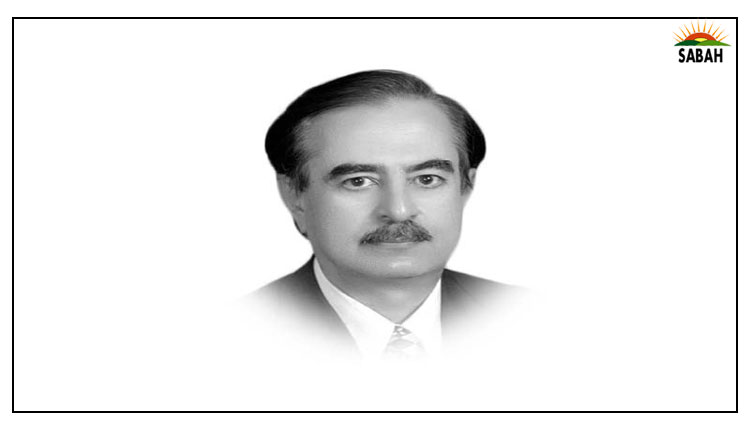Poor government, rich inegalitarian society .۔۔۔۔ Sahibzada Riaz Noor
There is so much that is dichotomous and contradictory in society and the economy. Despite backbreaking inflation there is no shortage of goods, be they necessities or luxuries, in our markets.
On the one hand the miniscule super rich have billions of dollars stashed away in counterfeit, front offshore companies and accounts and invested in foreign properties and businesses in order to escape paying taxes. And on the other hand the government can hardly meet the requirements of its current expenditures and has to resort to loans and borrowings and run deficits of up to 6%, or even more, of the GDP. The wealthy avoid or are exempt from paying taxes whereas 40% of the population lives below the poverty line with 30% of school going age children out of school.
There is shortage of electricity and gas for the industries, yet markets, despite attempts to curtail shopping hours, remain open up to the wee hours of midnight.
Lights in cities and towns are not browned out nor use by consumers sees any diminution, despite the debt in the power sector soaring each year, standing presently at a massive Rs5.7 trillion. Public debt has soared during the last 75 years to a staggering $225 billion.
The affluent face no liquidity problem living in huge mansions and farmhouses nor is there a decrease in the extent of foreign trips or purchase of foreign luxury vehicles. Yet the government has to live on borrowings from banks or external sources like IMF and bilateral sources.
The public sector revenues are so inadequate due to agriculture, property and retail sectors being nearly untaxed, with huge tax exemptions to vital areas and a lopsided system of subsidies that is both inefficient and inequalitarian, the rich and well placed benefitting unduly from subventions as against the deserving poor, so that the state has failed, primarily due to paucity of funds, to provide the most basic public services in education, health, sanitation, etc.
Successive governments with measly revenues, and huge borrowings have diverted public resources to politically eye catching mega projects like highways, airports, etc, neglecting basic social services which impinge harshly upon the living standards of predominantly the poor and lower middle classes, further exacerbating poverty and inequality.
Pakistan has one of the highest rates of infant mortality of 5.86% as compared to 2.3% in India, 1.7% in Bangladesh, 0.5% in Sri Lanka and 2% in Nepal. In the sub Saharan countries the average infant mortality rates range from 8.5 to 9% with 10.3% in war stricken Afghanistan.
In terms of Universal Health Coverage (World Bank Group 2021), Pakistan ranks among one of lowest with 45% (slightly better than Afghanistan with 41%) of the population with access to basic health facilities as compared to 63% in India. The overall average figure of health coverage in South Asia is 59%. The percentage of the population without access to sanitary facilities in Pakistan is 32%.
In the education sector in terms of illiteracy rates, Pakistan ranks at 152 out of 180 countries with an adult literacy rate around 60%. In merged areas of KP female literacy is 7.8%, and 30 million children are out of schools, the second largest in the world after Nigeria.
State revenues are so insufficient that after covering debt servicing and defence, most of the development expenditures and even salaries of public servants have to be met through borrowings.
Why is the government poor and society apparently well off, although experts will tell you that 40% of the population lives below the poverty line. It can mean three things: firstly, we don’t pay taxes, and only 22% of the population pays income tax; secondly, we are essentially a consumer society; and lastly, there is incidence of extreme income and wealth inequality in the economy.
We are marked by a high ratio of marginal propensity to consume. Due to a huge defence burden, our national savings rate, as percentage of GDP, of around 10% is one of the lowest in the world. The saving rate in Bangladesh, which was part of the same country 43 years back, is nearly 16% whereas in India it touches 26%.
Most of the industry in Pakistan is producing consumer goods rather than high value-added productive and exportable goods like electrical and mechanical goods. On the external front, the major portion of imports relate to consumer items. Even those goods which do not strictly fall in the consumer category, such as chemicals and raw materials, are also mostly used in the production of low end consumer goods with meager value-added and low terms of trade vis a vis world trading commodities.
Although Pakistan-IMF relations are often described as a Sisyphian burden on the country’s back, leading to inflationary pressures and depressed growth that results in increased poverty, IMF dependency has often led to results that are the very opposite to IMF aims and goals due to poor resource management leading to the enhanced debt yoke.
Most of the investments take place in the unproductive, rent bearing property sector, gold and speculative stocks.
Multilateral and bilateral foreign assistance mainly goes towards servicing debt that was used not to increase the productive base of the economy but to bolster either production of consumer goods or incurrence on infrastructure and providing impetus to a rent seeking economy.
The constant refrain goes something on the following lines: Government is bad, inefficient and corrupt. Finance Ministers are inefficient. Municipalities, courts, bureaucracies and now those who were called the untouchables are incompetent and prone to financial malfeasances, pilferages and avoidance of taxes, levies and duties.
But when it comes to paying taxes, in a population of 240 million, a paltry 22% pay income tax, most of them public servants or from withholding levies. And 18-21% of collectible revenue by Wapda is lost due to line losses which is a euphemism for theft.
A poor government and a rich society. The rot is amidst and part of us. The state is a mere reflection of society. When you point a finger at the government, three fingers point towards yourself. Thorough, widespread reforms in the economy are overdue to improve the state’s role in ushering welfare.
Courtesy Express Tribune












